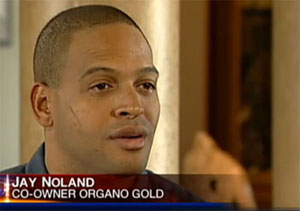Affiliates put $250K+ towards Success by Health’s legal costs
 In an attempt to overturn the granted preliminary injunction against Success by Health and owner Jay Noland, one hundred and eight SBH affiliates submitted filed declarations.
In an attempt to overturn the granted preliminary injunction against Success by Health and owner Jay Noland, one hundred and eight SBH affiliates submitted filed declarations.
Ignoring the FTC’s legal arguments, some SBH affiliates instead raised allegations of racism.
The Court considered Defendants’ arguments about those allegations and stated:
“This is a frivolous argument and the Individual Defendants’ counsel should be ashamed for raising it.”
Consequently that effort to overturn the granted preliminary injunction failed.
Now a much smaller group of affiliates, numbering thirty-three and assumed to be among Success by Health’s top earners, are seeking to intervene.
This follows a previous attempt a few months ago to join the case as defendant parties.
The SBH affiliate’s intervention motion is once again an attempt to overturn the granted preliminary injunction.
In opposition to the requested intervention, the FTC has provided some remarkable revelations.
The first point of contention is the timing of the intervention motion.
The Federal Trade Commission opposes the Motion to Intervene by a group of at least 33 Success By Health affiliates who seek to intervene in this case 13 months after it began, 12 months after they signed declarations for the Court, and nearly two months after discovery closed.
It is untimely, just as Defendants’ attempt to join these same affiliates as parties failed as untimely months ago.
Next the FTC argues that the interests of the thirty-three SBH affiliates are “adequately represented”.
On the “public interest” side the interests are represented by the FTC.
 Conversely, the FTC argues any opposition to the FTC position is also represented, by way of SBH affiliates dropping at least $250,000 on SBH’s legal defense.
Conversely, the FTC argues any opposition to the FTC position is also represented, by way of SBH affiliates dropping at least $250,000 on SBH’s legal defense.
SBH affiliate’s funding of the company’s legal defense (and by proxy that of owner Jay Noland’s), appears to have begun right from the beginning.
Unknown persons paid prior defense counsel $100,000 for its work from the start of the case to shortly after the preliminary injunction.
Jeffrey Wright, a SBH affiliate and Scientific Medical Advisory Board Member, dropped $130,000 during the first 45 days post TRO (the period between the TRO being granted and then the granted preliminary injunction).

The FTC believes Wright further assisted Noland with violating the granted injunction.
Since December 2020, the law firm currently representing SBH and Noland have
disclosed it had been paid $466,517.58 as of December 9, 2020—at least $218,300 of that amount (47%) came from 9 of the 33 SBH Supporters.
Despite being ordered by the court to disclose the source of another $309,217 in legal expenses, SBH and Noland have thus far failed to do so.
Not withstanding, the FTC calculates that
10 of the 33 SBH Supporters have paid 87% of the Individual Defendants’ legal and expert fees and costs.
As of December 2020, the Individual Defendants had spent more than $600,000 of other people’s money in defending this case, albeit without success.
Another argument raised by the affiliates is that
“[t]he FTC . . . has fought against affiliates’ efforts to speak for themselves,” and “opposed … testimony of SBH’s affiliates.”
The FTC disputes this argument, asserting;
The FTC sought testimony from SBH affiliate Jay Noland, which the Court denied.
Moreover, when the FTC sought by subpoena the evidence affiliates claim to have about their financial experience with SBH, 5 of the 19 subpoenaed (26%) provided no response.
All of the non-responders are among the 33 SBH Supporters.
Additionally, the FTC had to move two district courts to compel two affiliates and named intervenors (Jo Dee Baer and Jeffrey Wright) to provide a response.
The final argument raised is that the affiliates need to intervene because
they are “denied access to the [SBH] products” and their “commissions are being withheld.”
The FTC’s answer to this one really drives home the absurdity of the intervention motion.
The Receiver continues to sell SBH products.
In truth, there is not a separate pot of earned commissions.
The Defendants neglected to establish an escrow for affiliate commissions, instead commingling company funds together, running up debts that exceeded funds for commissions, and buying the Nolands a luxury Range Rover and motorcycles with company funds while the affiliates struggled.
What’s the bet none of the thirty-three affiliates will blame Jay Noland for the financial mess they’re in though?
A decision on the Motion to Intervene remains pending. I’ll continue to monitor the case docket for updates.
Update 10th April 2021 – The Success by Health affiliate’s motion to intervene has been denied.
Update 17th August – The Success by Health Receiver has revised the FTC’s “at least $250,000” figure to “almost $600,000”.


Imagine being in a pyramid scheme, losing money and then collectively dropping hundreds of thousands to defend said pyramid scheme.
Imagine being a money-losing affiliate, watching the top scammers spend money they stole from you in an attempt to get to keep on stealing.
And it’s all so pointless; they have no chance of prevailing in this case. The TRO was the lid slamming shut on the coffin; the preliminary injunction was a boxfull of nails sealing it shut.
The only winners here are the lawyers. I hope the court fines their asses for filing such ridiculous claims.
I keep thinking about the old saying “A fool and his money are soon parted” when reading this. Some never learn.